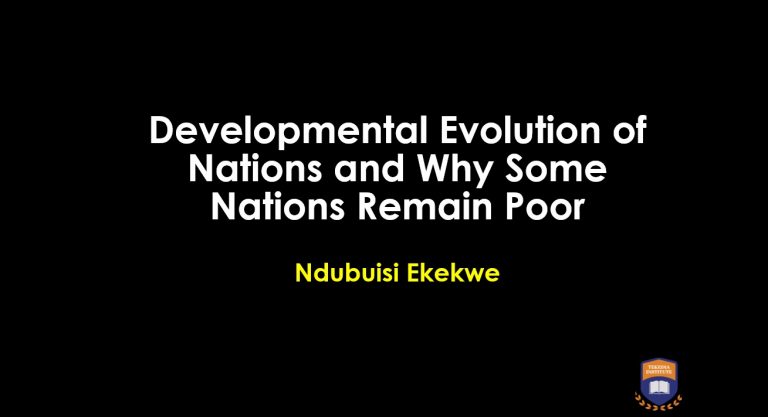
In this piece, I explore the transformation of the world through three distinct eras: Invention Society, Innovation Society, and Accelerated Society eras.
The Invention Society era, pre-1780s, marked by significant inventions in physics and chemistry, provided the foundations for modern science. But it had limited products and services for the needs of markets. Men and women discovered elements but could not make vaccines at scale, dying when epidemics struck.
After the Invention era was the Innovation era, which was characterized by mechanization, mass production, and the rise of producer services. In that age, products and services were created to solve problems in the markets. That era has existed to just about 2020.
Register for Tekedia Mini-MBA edition 19 (Feb 9 – May 2, 2026): big discounts for early bird.
Tekedia AI in Business Masterclass opens registrations.
Join Tekedia Capital Syndicate and co-invest in great global startups.
Register for Tekedia AI Lab: From Technical Design to Deployment (next edition begins Jan 24 2026).
At the moment, the Accelerated Society era with AI systems, autonomous machines, and a centralized economy, leading to technical-societal convergence and integration, is at the fledgling level. Technology systems are enabling interconnectedness which is highlighted by seamless global transactions and evolving social norms.
Indeed, these technological advancements foster trust and familiarity among strangers, diminishing traditional barriers and accelerating societal convergence. Yes, you can enter that Uber car without even making eye contact with the driver, and sleep in that Airbnb room in a stranger’s house! Those tech stacks have brought human elements together at scale, seeding economic acceleration, even though not everyone will benefit at the same level.
Developing nations are still operating as Invention Societies, known for ideas everywhere, but limited products and services to solve frictions in markets. Developed economies are transitioning from Innovation Societies to Accelerated Societies, at a rapid level, fueled by the emergence of AI systems.
In these two videos, I explain this developmental evolution, and why many nations remain as Invention Societies, despite latent abundance in the land. As you watch, you will see that inventions do not necessarily create wealth by fiat, what makes wealth happen is innovation which happens when the inventions (yes, ideas) have been turned into products and services to solve real problems in societies.
When a nation does not develop productive capabilities to make that transition from an invention to an innovation society, it remains poor, despite the level of ideas in that economy.
---
Connect via my
LinkedIn |
Facebook |
X |
TikTok |
Instagram |
YouTube




First is to understand that you cannot borrow your way to prosperity, since you cannot guarantee that you can produce more than you consume in the future, so you will eternally remain in deficits, if you toe that line of borrowing. Your population is still growing, so there’s no way your problems will reduce, except you do something profound, but you have never shown any signs of being capable of such.
Let me make it very clear that you cannot develop Nigeria by holding elections every four years, this is partly because, even with credible and free election, you cannot still guarantee a competent leadership with immense capabilities. Elections will not guarantee you that, individual interests and beliefs will always come in the way, so you are bound to have ups and downs, cycles after cycles.
You are not going to do much better in terms of productivity by giving everyone freedom to do what they want, to be extremely productive, you will have to basically force almost everyone to concentrate on the very few things that will drive the rest of future growths. Anything to the contrary, you are bound to underperform and remain miserable and pathetic.
Where will Nigeria extract the men and women with the required character strength?